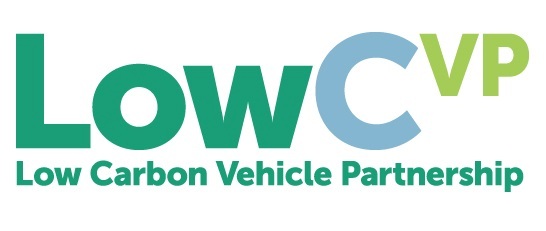A number of our parallel presenters have written blogs on their research topics. We will be publishing these on a fortnightly basis in the run up to the conference. They cover a wide range of topic areas from Heat Solutions, Home Energy Retrofits, Local Energy Markets and Smart Meters.
Our final two blogs have been written by Nicholas Rubin from Elexon and Rachel Bray from the University of Exeter
Conference Blog No. 8 Unlocking Local Energy Markets
Rachel Bray spent most of her career as a Planning Policy Officer, developing all aspects of planning policy in Cornwall, but with an interest in social policy – affordable housing, social inclusion, fuel poverty, transport, health and crime. She is particularly interested in understanding how strategic policies and decision-making affect rural communities.On leaving Cornwall Council she decided to put my theory into practice by setting up and managing a foodbank in my home town. This was in direct response to recognising a need through my research and deciding to do something about it.
She first came to the University of Exeter in 2013 to implement the campus travel plan and to coordinate the tender and procurement of the Uni bus contract. During this time, she was shortlisted in the category of Best Newcomer in the Green Gowns Award. Rachel later joined the Energy Policy Group in 2017, where she currently works as a Research Fellow under the guidance of Dr Bridget Woodman. Her research looks at the regulatory barriers to the creation of local energy markets in GB.
Read blog
Conference Blog No. 7 Unlocking the benefits to end consumers
 Nicholas Rubin has 10 years’ experience working with utility businesses in the electricity and gas industries. His primary experience is in relation to the development and communication of regulatory policy and the commercial arrangements that govern the operation of the electricity and gas wholesale and retail markets, and for distributing electricity. He has a track record of advising stakeholders on the industry arrangements, providing insightful commentary on issues that affect utility businesses and helping to develop effective solutions.Amongst other things, over the last eighteen months he has worked on projects aimed at simplifying the requirements for the central registration of generating plant (including storage) and reform to embedded generator benefits.
Nicholas Rubin has 10 years’ experience working with utility businesses in the electricity and gas industries. His primary experience is in relation to the development and communication of regulatory policy and the commercial arrangements that govern the operation of the electricity and gas wholesale and retail markets, and for distributing electricity. He has a track record of advising stakeholders on the industry arrangements, providing insightful commentary on issues that affect utility businesses and helping to develop effective solutions.Amongst other things, over the last eighteen months he has worked on projects aimed at simplifying the requirements for the central registration of generating plant (including storage) and reform to embedded generator benefits.
Read Blog
Con ference Blog No. 6 Incentivising households to reduce electricity consumption: Information, nudges and peak pricing
ference Blog No. 6 Incentivising households to reduce electricity consumption: Information, nudges and peak pricing
Penelope Buckley is currently completing her PhD at the Université Grenoble Alpes with Grenoble Applied Economics Laboratory. Her thesis is on “Dynamic pricing and smart meters: An experimental analysis of household electricity consuming behaviour”. Using methods from experimental and behavioural economics to explore how individuals and households respond to different incentives aimed at encouraging them to reduce their energy consumption. She has a joint Master’s degree in Economics, Statistics and Management from the Université Grenoble Alpes and Grenoble School of Management, and completed her undergraduate studies at the University of Kent.
Read Blog
C onference Blog No. 5 Affordable Clean Energy for Consumers: Dream or Reality?
onference Blog No. 5 Affordable Clean Energy for Consumers: Dream or Reality?
Dr Cristina Peñasco is a Centre Fellow in the Cambridge Centre for Environment, Energy and Natural Resource Governance (C-EENRG). She joined the Department of Land Economy in November 2017 after six months in the Department of Politics and International Studies, also at the University of Cambridge (UK) where she was a Postdoctoral Research Associate from May 2017.
Read blog
 Conference Blog No. 4 Household Investment in Home Energy Retrofits – reviewing the evidence and designing effective policy
Conference Blog No. 4 Household Investment in Home Energy Retrofits – reviewing the evidence and designing effective policy
Niall Kerr is an interdisciplinary energy researcher with a background in social and political science, and economics. I currently work as the Research Fellow on the ‘Energy Policy Effectiveness’ project, developing a dedicated method for Scottish energy policy assessment based on systematic evidence review methods.
Read blog
Conference Blog No. 3 – On the Rebound
Tina Fawcett, Senior Researcher, ECI, University of Oxford
Tina has worked in energy and energy policy research for twenty years. She investigates energy use by households and organisations, and uses a multi-disciplinary approach to understand current patterns of use and to identify opportunities and policies for reducing energy use and carbon emissions. Her work is funded by UKERC, the Centre for Research into Energy Demand Solutions and other EU and UK sources.
Tina’s blog discusses the limits of the rebound effect, which her conference paper will examine in more detail, explaining why energy efficiency is not a waste of time.
Read Blog
Conference Blog No. 2 – Could energy services help us build an energy system people will want to pay for?
Matthew Lipson, Head of Consumer Insights, Energy System Catapult
Why should we bother discovering what people actually want from the energy system? We need to change how we generate, transport and use energy to decarbonise and tackle climate change. There are many options. The choices made in each area and by every household have different implications for how people will be able to use energy in the future to get comfortable, move around and so on.In the end, whether by taxation or through their bills, people will pay for transforming the energy system. This raises challenging questions:
How can businesses design energy products and services consumers will want to pay for?
How can Governments introduce low carbon policies that citizens will support?
How can engineers build a system that will deliver reliable, affordable and low carbon energy?
There is a growing consensus that we need to know what people want from energy to provide the answers. The only other question is, how can we find out?
Read blog
 Conference Blog No. 1 – The BIEE 2018 conference: Why you should go and why you will want to come back in 2020
Conference Blog No. 1 – The BIEE 2018 conference: Why you should go and why you will want to come back in 2020
Dr Matthew Hannon, Chancellor’s Fellow, Hunter Centre for Entrepreneurship,
University of Strathclyde
In this blog Dr Matt Hannon,who is a member of the 2018 conference committee, talks about his experience of BIEE conferences and why it is always the first conference in his diary. ‘I firmly believe the conference strikes the perfect balance in terms of size: large enough to ensure the right people are there but intimate enough that you can easily connect with influential people over a coffee or a drink. As an academic, BIEE has afforded me the opportunity to discuss my research with former energy ministers, CEOs of energy utilities and senior civil servants, in turn opening up new opportunities for collaboration. You simply don’t get these opportunities every day.’
Read the full blog
















Post your comments and questions for the speakers here